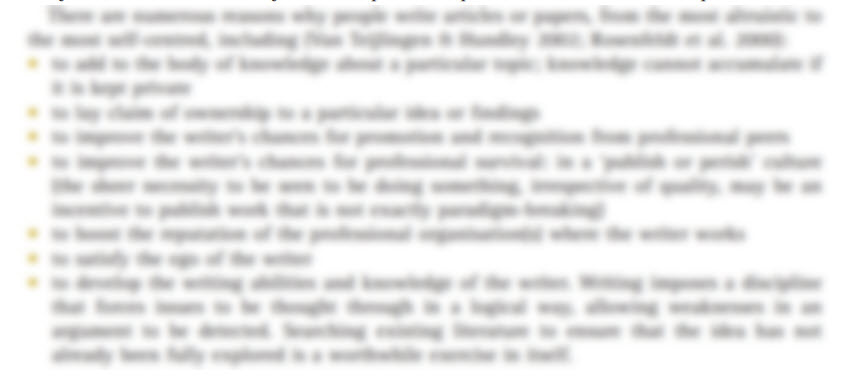Science is often complicated and writing about a scientific topic can be like trying to untangle spaghetti. Writing efficiently can also be a struggle if you are exploring an unfamiliar topic or haven’t had a lot of writing experience. Irrespective of experience, there are two types of writing behaviour that will greatly reduce productivity and confidence.
1. Writing without having a clear understanding of your core topic
Your core topic includes your document aims and objectives and the key problems you are aiming to solve, together with an explanation of how your topic fits within your discipline. Starting to write without a clear idea about the depth and breadth of your topic can be time-consuming. Every scientific topic may be linked to dozens of other sub-topics that at first consideration appear just as important as your original topic. It is often tempting to try and include them and look for a way to link them all together. Without clear focus, it is easy to drift away from your topic and you may not realise that you are actually writing about five topics instead of one.
It can be easy to get distracted from your main story by adding excessive and seemingly, interesting details. Avoid the desire to update the reader with every twist and turn, every exception to the rule, and every related, but not-so-important, detail.
2. Polishing: trying to write perfectly in a first draft
Inefficient writers often start by writing a burst of fresh thoughts and then immediately spend considerable effort rewriting, editing, and proofreading this material before writing a fresh block of text. This is also known as polishing your writing. Polishing in early drafts is an easy trap to fall into when writing on-screen: each time you open a file, it is tempting to first read, review and then re-edit the existing text before writing fresh material. As the document develops, what is written earlier is continually reconsidered, rewritten and re-edited while what is written later receives far less attention.
Polishing in the early stages of writing can be a form of procrastination where you allow yourself to get distracted from the important thinking time and problem-solving needed to design your document.
People often believe that they should be writing perfectly the first time and get frustrated at the seemingly endless amount of time it takes to complete a document. Some people imagine that innumerable drafts and rewrites will be needed and suspect that they will never be happy with the final product. Labouring over a single sentence while thinking you still have 1000 more to write is daunting.
Polishing your sentences is necessary in later drafts when fine-tuning your ideas and improving your message for the reader. Inefficient writers polish early, while efficient writers polish after they have worked out what they want to say.
© Dr Marina Hurley 2019 www.writingclearscience.com.au
Any suggestions or comments please email info@writingclearscience.com.au
FURTHER READING
- Should we use active or passive voice?
- 10 writing tips for the struggling ESL science writer
- Co-authors should define their roles and responsibilities before they start writing
- How to write when you don’t feel like it
- When to cite and when not to
- Back to basics: science knowledge is gained while information is produced
- How to build and maintain confidence as a writer
- If science was perfect, it wouldn’t be science
- What is science writing?
- 8 steps to writing your first draft
- Two ways to be an inefficient writer
- Work-procrastination: important stuff that keeps us from writing
Find out more about our new online course...
Now includes feedback on your writing Learn more...
SUBSCRIBE to the Writing Clear Science Newsletter
to keep informed about our latest blogs, webinars and writing courses.




